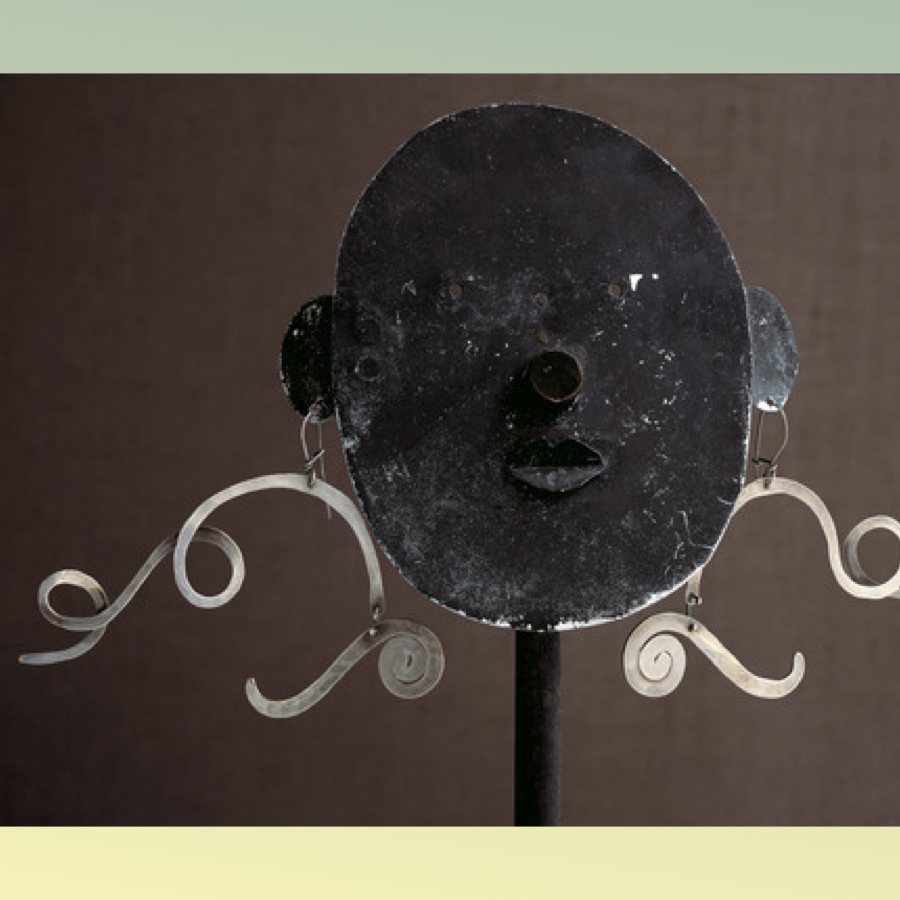The gap between art and jewellery is smaller than you might think. In fact, many artists have tried their hand at making jewellery, from Picasso to Anish Kapoor and Damien Hirst, they’ve created artworks that can be worn.
The movement Wearable Art began in the ’30s and pushed jewellery beyond the craft label, giving the status of art to the wearable small sculptures. Surrealists, Cubists, Abstract Expressionists and Modernists have transported their creations to the jewellery world. And today, many jewellery designers and goldsmiths create fantastic brooches, necklaces and earrings that show us the magic that happens when art and jewellery meet.
Salvador Dali
Dali is one of the artists whose jewellery pieces are very well-known, like the iconic “Eye of Time” brooch and the melting clock in the “Persistence of Memory” brooch. He began designing jewels in 1941, creating around 40 ornaments. The Argentian-born goldsmith Carlos Alemany made the surrealist pieces in gold and precious stones. Although art critics considered at that time the work of the eccentric painter too commercial, his jewels were in fact precursors to the Pop Art of the 1960s.
Pablo Picasso
The prolific Spanish artist started making jewellery kind of by accident. Picasso asked a friend, the goldsmith François Hugo, to cast in gold a damaged plate decoration. They then went on creating several medallions and brooches like this “Horloge à la Langue”.
For a similar style, here.
Man Ray
Like his fellow surrealist artist Salvador Dali, Giorgio de Chirico and Jean Cocteau, Man Ray also dabbled in jewellery-making with the help of jeweller GianCarlo Montebello. Man Rae designed in 1970, for example, the gold necklace with lapis lazuli “La Jolie” but it still looks modern today.
Alexander Calder
The American sculptor is mostly known for his kinetic mobiles and wire sculptures. But Calder also made around 1800 jewellery pieces during his lifetime, including the fantastic necklace “The Jealous Husband”. The bold necklace, worn here by Angelica Huston and shot by Evelyn Hoffer in 1976, is now in the collection of the Metropolitan Museum in NY. American socialites were crazy about Calder’s jewellery. For instance, Peggy Guggenheim wrote proudly in her autobiography: “ I am the only woman in the world who wears his enormous mobile earrings.” His work has been an inspiration for many jewellery designers, see here.
Jean Cocteau
The French poet, novelist, filmmaker and critic was also a visual artist and designer. Friends with Picasso, Modigliani, Proust and Nijinsky, Cocteau was an exponent of the Avant-Garde art. The multi-talented Cocteau experimented with pottery in the late ’50s, which took him to jewellery design. He said, “I have always dreamed of being an archaeologist, and as I’m not, I try to make up what I would have liked to find underground.” For example, the gold pendant with rubies and diamonds made in 1962, “Faune à la Barbiche”, from his original sketch dated 1960.
Georges Braque
The artist began his career as an Impressionist painter. From 1909 to 1911, he collaborated with Picasso and together, they founded the Cubist movement. He is most known for his collages, but Braque also created engravings and sculptures, and even stained-glass church windows. The Baron Heger de Lowenfeld made all his jewels. The jeweller would make the pieces taking the design from Braque’s existing work. Braque used to mix sand in his paint, and because the painter didn’t like shining gold, Lowenfeld recreated the granular effect of the paintings in the texture of the jewellery pieces.
Niki de Saint Phalle
One of the few female monumental sculptors of her time, the French-American sculptor was also a painter and filmmaker. Niki de Saint Phalle is known for her “Nanas”; the colourful and playful large-scale sculptures of plum ladies in the best Pop Art style. The Nanas, her smiling serpents and monsters have become jewellery in the ’70s, through the hands of Giancarlo Montebello, the same goldsmith who made Man Ray’s pieces.
Elsa Perretti
The Italian jewellery designer and philanthropist has some of her iconic pieces in the British Museum and the Museum of Fine Arts in Houston and Boston. A former model and regular of Studio 54 with Andy Warhol and Liza Minnelli, Peretti began designing jewels for several fashion designers in Manhattan. In 1974, she started working for Tiffany and Co, becoming in short time, the firm’s leading designer. Her Bone cuffs are iconic. The designer’s signature style are organic shapes and the use of silver, jade and lacquer. Peretti’s jewels are elegant, modern and timeless.
Title image @calderfoundation
